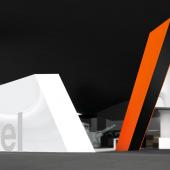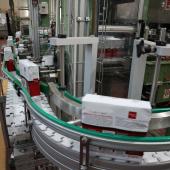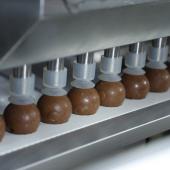rPET films: the sustainable solution for food packaging
Question and answer session with Krishna Reddy, the expert who, in Polyplex, oversaw the development of rPet films for food packaging. Considerations on features, workability and advantages offered by this material.
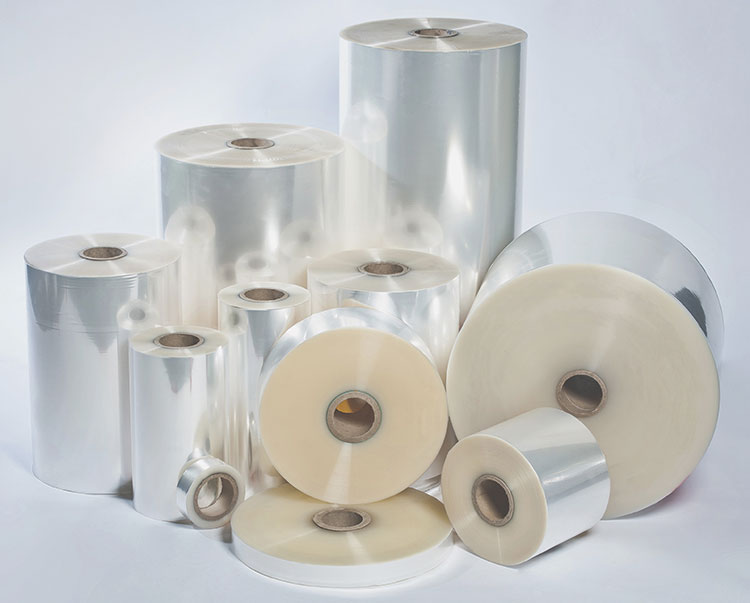
The EU has stipulated that by 2030 all plastics placed on the EU market must be either reusable or can be recycled in a cost-effective manner. Are PET films fulfilling this demand?
If we consider post-industrial films, PET is generally one of the easiest products to recycle. The challenge is how to recycle/reuse the post-consumer films, particularly as a lot of it is used in multilayer products (MLP).
Thanks to the compatibilizer technologies, granules made from MLP waste with PET have many downcycled end-of-life applications. The proof of concept is well established with PET based MLP. They can be injection or extrusion molded to produce different articles in the same way as Polyolefins.
Polyplex and TPL are propagating solutions based on rPET films: what is the advantage in terms of sustainability?
The unique advantage of rPET is that it is the only food packaging film that at the same time contains a high amount of post-consumer recyclate (PCR) and is suitable for direct food contact according to European and US regulations. Thanks to rapid commercialization of chemical recycling technologies, rPET films in packaging fulfils one of the objectives of the circular economy, namely reducing the use of fossil resources giving tremendous advantage of CO2 footprint.
Does the use of your rPET films mean any compromise on quality of the products?
Not at all. Reducing the impact on the environment while maintaining the performance of the packaging is essential. It is important to note that replacing PET films with rPET films does not change the barrier level or any other functional characteristic. There is no compromise on quality or performance. Unlike other plastics, production of BOPET through chemical recycling is without any significant performance challenge thanks to high-quality rPET virtually indistinguishable from its virgin counterpart. It is totally food safe and does not affect production efficiency.
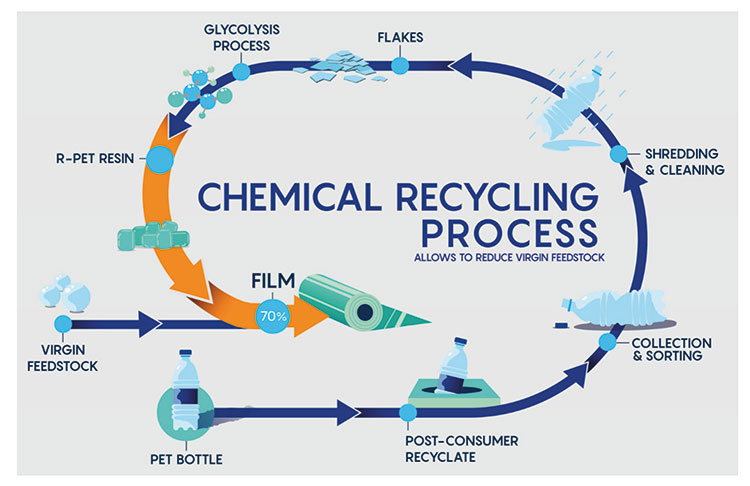
But how can you assure that the R-PET film complies with regulations for direct food contact while other film types do not achieve this?
The development of Polyplex’ rPET films was made possible thanks to investments in chemical recycling. This technology consists of depolymerization of post-consumer bottle flakes to monomers and a further polymerization to virgin PET resin suitable for extrusion in BOPET films. The BOPET films produced with this technology are suitable for direct food contact in accordance to USFDA and European legislation: rPET films from Polyplex/TPL are safe for the consumer.
You are mainly using PCR from the bottle industry. Aren’t you taking away recyclate that would otherwise be used again for bottles?
Today, only a small amount of post-consumer bottle flakes can actually be used for producing new bottles. A large part is ending up in textiles or trays. However, even with these applications there is a huge gap between the number of bottles that could be collected from consumers and the amount used for these applications. Worldwide forecasts show that even in 2025 the gap between availability and consumption would be several times the total global production of PET films. Therefore, every kg of bottle grade flakes that turns up in PET films reduces the use of fossil resources and no change of this trend is visible.
Chemical recycling is a rather new technology. Will it be possible to satisfy the upcoming demand for R-PET films?
We have been investing already at a very early stage in this process and currently have a capacity to produce around 6,000 t of recycled resins films per year in our own installations. A further expansion of 9,000 t is under construction for first half 2020 and further expansion plans in all our locations are being made. Therefore, we are ready to support our customers on the way to a more sustainable future.
|
Krishna Reddy is Head of R&D and Sustainability at Polyplex Corporation. He holds a Masters Degree in Chemical Engineering with specialization in Polymers. He has over 32 years of diverse experience in research and innovation of various packaging films including BOPET, BOPP and CPP and has led the development of rPET films. |
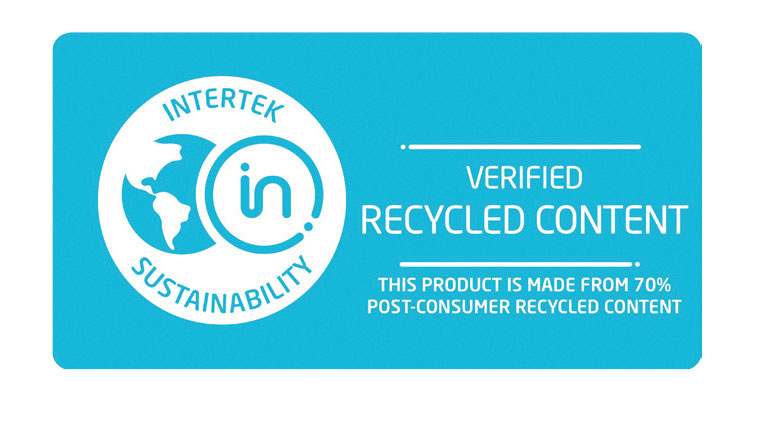
Polyplex’ rPET films : the advantages in practice
As Krishna Reddy affirms: «It is important to note that replacing PET films with rPET films does not change the barrier level or any other functional characteristic».
Bi-oriented polyester (BOPET) films are known for their exceptional mechanical properties, transparency, gloss and high temperature resistance and above all for their barrier properties which allow to increase shelf life very substantially. For this reason, they have a very important impact to reduce food waste. This in turn means that thanks to PET films a lot less natural resources are being used.
All films in the Polyplex range can be produced with PCR. The production in industrial scale of these films has already started. Various types of 70% PCR PET films are available from TPL’s distribution stock in Antwerp (BE) for delivery within a few days all over Europe. For a brand owner this change can be implemented immediately without any modification in the packaging structure.
The production of rPET films is one of the aspects of the holistic approach of sustainnability promoted by Polyplex and TPL. Other initiatives such as the use of renewable resources for polyester film production (plantPET) or the reduction of film thickness (light weighting) support this approach.
MORE INFO
Transparent Paper Ltd.
Thurgauerstrasse 40
CH-8050 Zürich
Tel. +41 44 308 92 92
[email protected] - www.tpl.ch


 NOTE
NOTE










